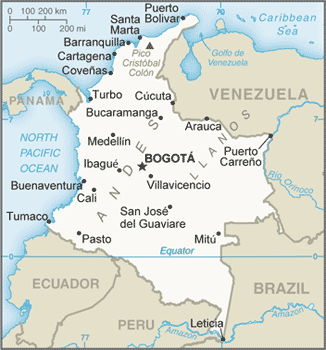Posted February 18th, 2014 at 5:32 pm (UTC+0)
 The arrests of several activists near Sochi have renewed attention on the ways in which dissent is suppressed in Russia. Two members of the feminist punk group Pussy Riot were released after being arrested and detained for a short period Tuesday. Nadezhda Tolokonnikova and Maria Alyokhina say this was their arrest in three days.
The arrests of several activists near Sochi have renewed attention on the ways in which dissent is suppressed in Russia. Two members of the feminist punk group Pussy Riot were released after being arrested and detained for a short period Tuesday. Nadezhda Tolokonnikova and Maria Alyokhina say this was their arrest in three days.
Tolokonnikova’s husband Petr Verzilov told CNN: “They were put to the floor and beaten and physical force was used to them when they refused to be questioned without the presence of their lawyer, who was on his way to the police department.”
Authorities claimed the latest arrest was somehow related to a theft at a hotel where the two were staying, but Tolokonnikova and Alyokhina say they think it came in connection with a music video they were planning to make.
Amnesty International notes that journalists and activists are being arrested in Sochi almost every day. February 16, police picked up Semyon Simonov, lawyer and coordinator of the network “Migration and Law” of the Memorial Human Rights Center; journalists from Radio Free Europe and the Russian independent newspaper Novaya Gazeta; and local civil rights activist David Khakim, whose crime was waving a flag that read, “Freedom for Yevgeny Vitishko.”
Vitishko is an environmental activist who has actively protested deforestation and what they say is illegal construction and fencing in a protected forest around Sochi. He was detained February 5th for “hooliganism,” says Amnesty, after authorities learned of his plans to travel to Sochi.
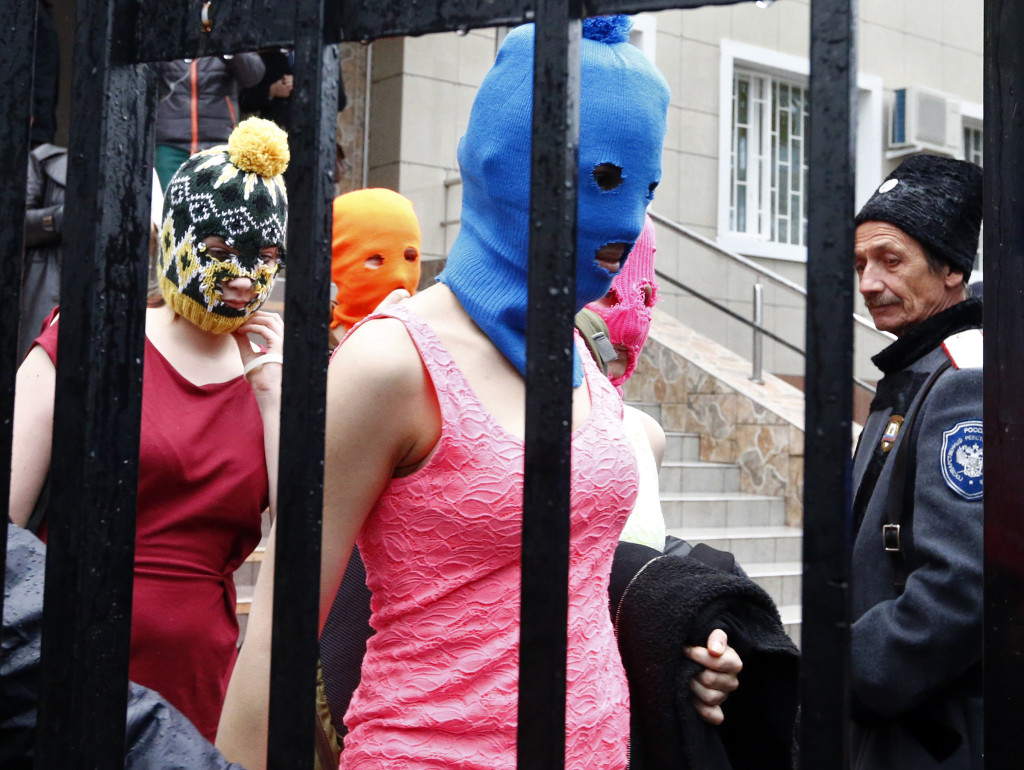
Masked members of protest band Pussy Riot leave a police station in Adler during the 2014 Sochi Winter Olympics, February 18, 2014. Two members of Pussy Riot, Maria Alyokhina and Nadezhda Tolokonnikova were detained on Tuesday in connection with a theft in the Winter Olympics host city of Sochi, less than two months after their release from prison under an amnesty. REUTERS/Shamil Zhumatov
On the day after opening ceremonies in Sochi, an unnamed animal rights activist was arrested after he and two others held up a large banner which read, “Bloody Olympics” — referring to Sochi’s plans to euthanize large numbers of stray dogs.
Even a former member of Italy’s parliament, Vladimir Luxuria, was arrested in Olympic Park for carrying a banner which read, “Gay is OK” in Russian.
Amnesty Europe and Central Asia Program director John Dalhuisen says, “In Putin’s Russia, the authorities have turned the Olympic rings – a worldwide symbol of hope and striving for the best of the human spirit – into handcuffs to shackle freedom of expression.”
Dalhuisen says people are being targeted solely because they speak their minds, which he says is outrageous, and he also called on the International Olumpbic Committee to condemn these and all arrests near Sochi.
Last July, seven months ahead of the games, Amnesty reported that human rights have deteriorated since Vladimir Putin was re-elected in 2012. Since then, Amnesty noted that three laws have been passed which limit the activities of non-governmental organizations (NGOs), restrict street protests, criminalize public activities “committed to insult the religious feelings of believers” and ban gay rights protests.
As a result, 43 NGOs, including Amnesty International, have undergone “inspection.” The new laws mean that individuals face up to 20 years in jail and heavy fines for “providing consultative assistance to a foreign organization” if that group was involved in “activities aimed against Russia’s security.” Due to the allusive wording of this law, there is a fear that the law will be used to silence NGOs.
The report also details human rights violations in the restive North Caucasus, a region in the Russian Federation comprised of the Stavropol region and the six republics of Chechnya, Dagestan, Ingushetia, Kabardino-Balkaria, Karachaevo-Cherkessia and North Ossetia–including enforced disappearances, unlawful killings and torture which police and security regularly commit with impunity.
To read the six-page report, click here.
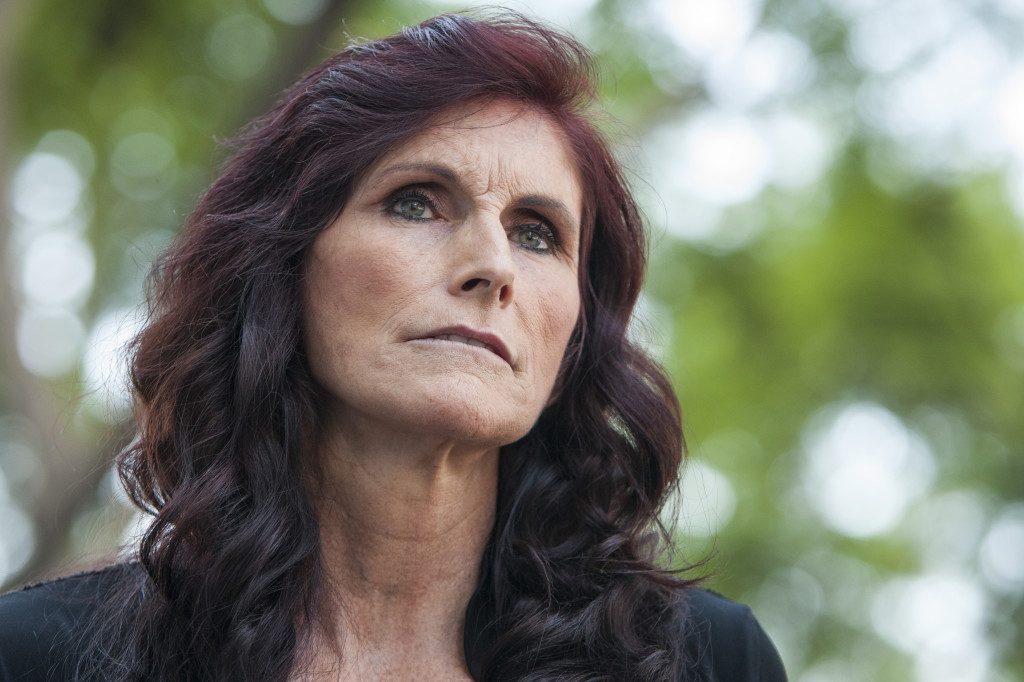 I received an emailed press release today from Dr. Terry Jones, who I’ve interviewed in the past about his anti-Muslim sentiments. For those who don’t know him, he is the controversial pastor from the U.S. state of Florida who helped promote the anti-Islamic video, Innocence of Muslims, which was posted on YouTube and caused a wave of angry protests across the Muslim world and death threats for the actors who claimed not to know what kind of film they were acting.
I received an emailed press release today from Dr. Terry Jones, who I’ve interviewed in the past about his anti-Muslim sentiments. For those who don’t know him, he is the controversial pastor from the U.S. state of Florida who helped promote the anti-Islamic video, Innocence of Muslims, which was posted on YouTube and caused a wave of angry protests across the Muslim world and death threats for the actors who claimed not to know what kind of film they were acting.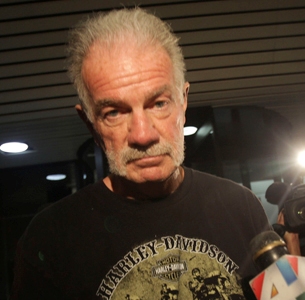

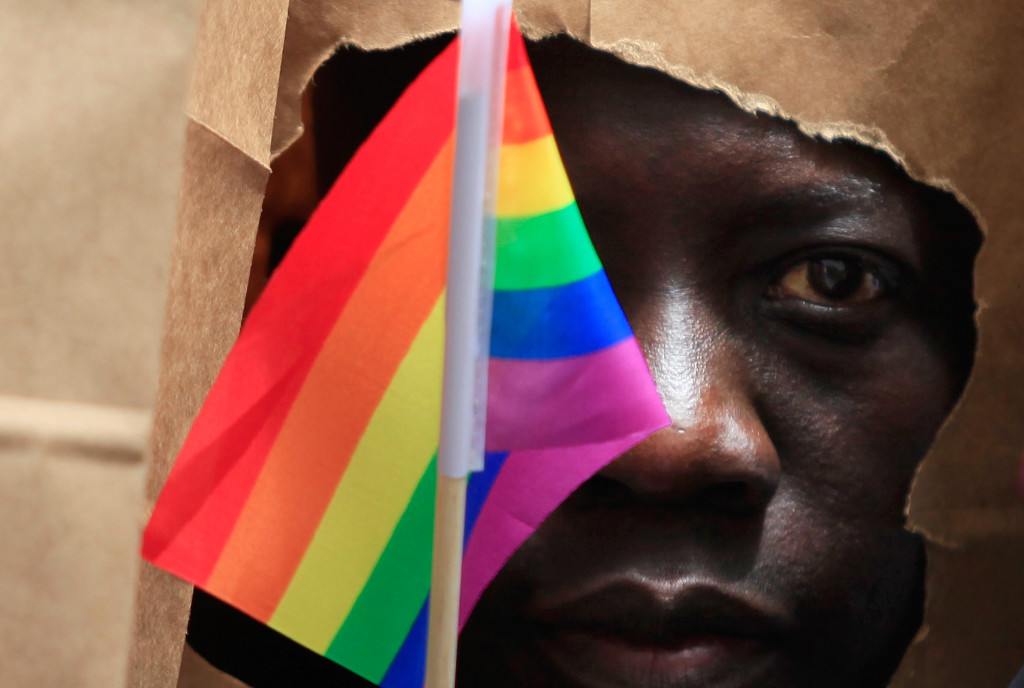

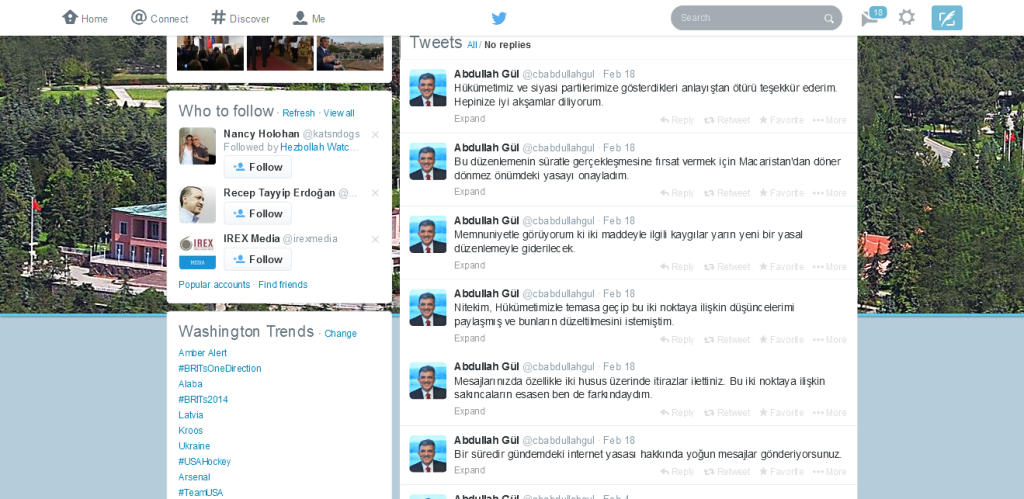




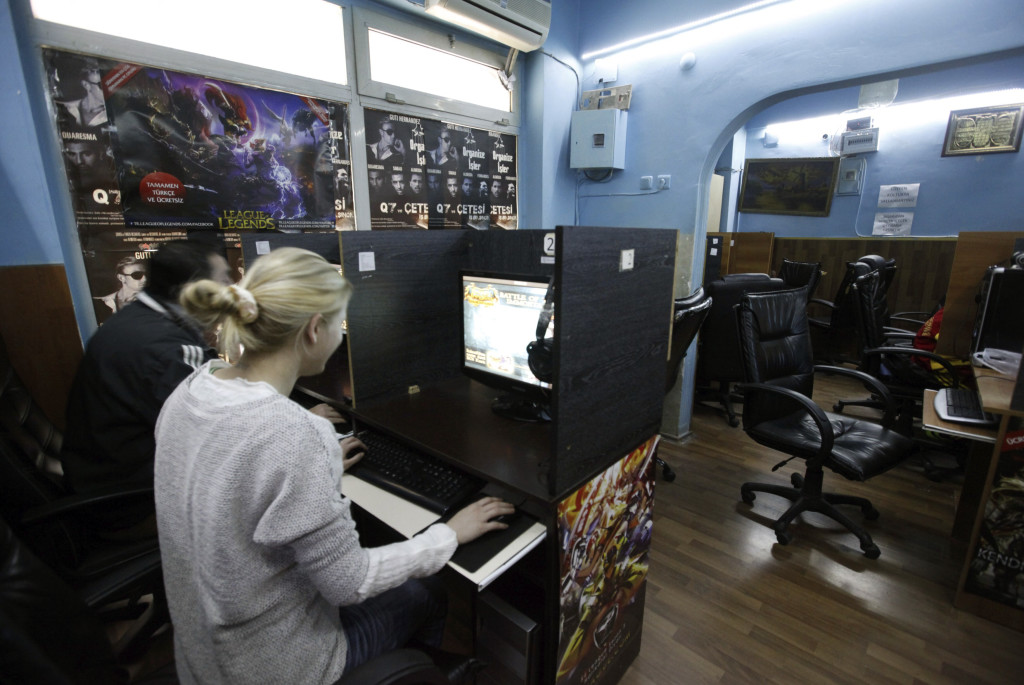

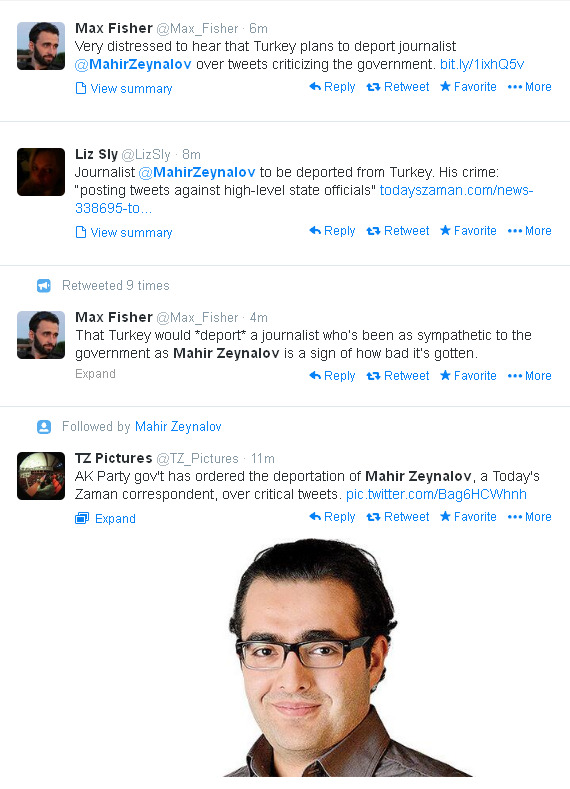

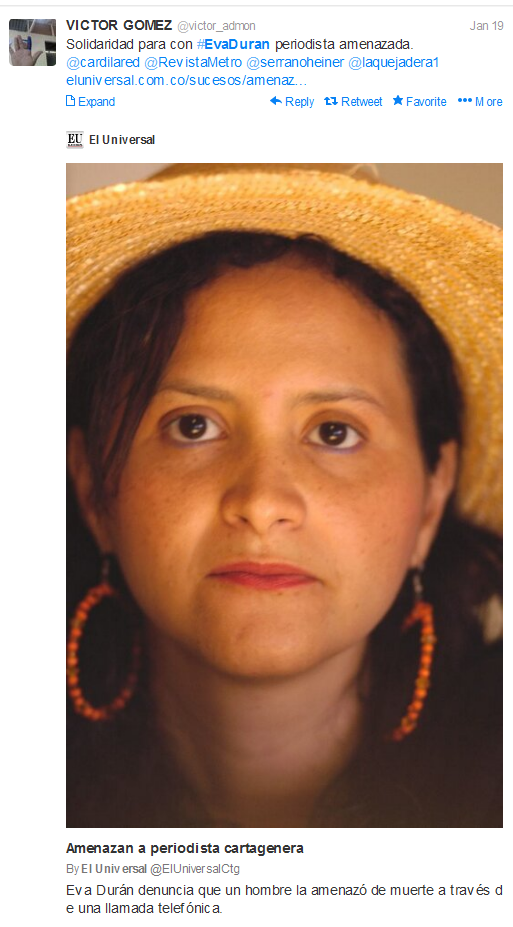 Reporters Without Borders (RSF) has called on authorities in Cartagena, Colombia, to take steps to protect a freelance journalist who has been forced into hiding after receiving death threats for her writing.
Reporters Without Borders (RSF) has called on authorities in Cartagena, Colombia, to take steps to protect a freelance journalist who has been forced into hiding after receiving death threats for her writing.